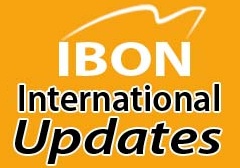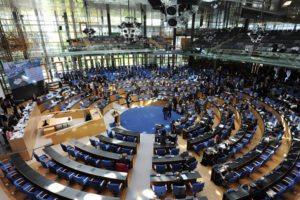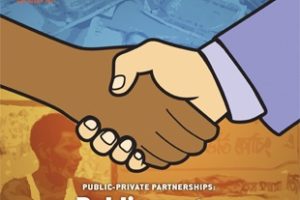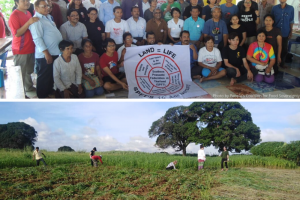Bali meeting to produce report on post-MDG future of development
[[{“type”:”media”,”view_mode”:”media_large”,”fid”:”33″,”attributes”:{“alt”:””,”class”:”media-image”,”height”:”168″,”style”:”width: 240px; height: 168px; float: right;”,”typeof”:”foaf:Image”,”width”:”240″}}]]
Post-2015 Agenda, Number 1
Bali, Friday, March 22, 2012
Civil society organizations (CSOs) from across the world are gathered in Bali for the third meeting of a UN-convened High-Level Panel (HLP) which will produce a report on how the Millennium Development Goals (MDGs) should be replaced in 2015.
In the face of multiple crises and entrenched poverty and inequality, the assembled organizations are hopeful the HLP will produce the bold recommendations needed on the future of international development – or be prepared to live with the dire consequences of its failure.
The meeting follows on from those held in London, UK, and Monrovia, Liberia. It will be the last before the Panel—led by co-chairs, Prime Minister David Cameron of the UK, President Ellen Johnson Sirleaf of Liberia, and President Susilo Bambang Yudhoyonyo of Indonesia—submits a final report to the UN in May outlining its perspectives on a new development framework. While both Sirleaf and Yudhoyonyo will be present in Bali, David Cameron will not be attending the meeting.
The theme of the Bali HLP is “global partnerships”. Over the weekend, March 23 – 24, CSOs will engage in a preparatory meeting to finalise positions from different sectors and on thematic issues before presenting statements to the Panel on the “stakeholder outreach day” on Monday, March 25.
Monday’s engagement with the panel will begin with a “townhall meeting” in which civil society will communicate perspectives and updates on participatory research, grassroots voices, civil society, and social movements. This will be followed by a CSO roundtable with HLP members on the issues of “vision and priorities”, “global partnerships”, “means of implementation”, “global governance and accountability”, and “the informal sector and inclusion”. Further roundtables will engage business, parliamentarians, academics, women, and youth.
A communiqué of civil society demands and positions will be jointly written by a selection of attending CSOs, including IBON International, and will form the backbone of a civil society press conference.
A new framework in a new context
Discussions on the new framework for development, referred to as the “Post-2015 Agenda,” are taking place in a different context than that which framed the Millennium Declaration and the Millennium Development Goals (MDGs).
Compounded financial, food and environmental crises are presenting problems and threatening to over-run achievements in development, which themselves do not match the aspirations of the MDGs or the continued rhetoric from, in particular, Northern governments which indirectly controlled the process of creating the MDGs. While much acclaim is made of progress on poverty in line with MDG No. 1, the income-based measurement used in the goal is crude. Some 2 billion continue to live in multidimensional poverty — a measure incorporating nutrition, education and sanitation. Half of the world’s population lives on less than US$2.50 per day, and nearly 1 in 7 people live in hunger while 1 in 5 suffer from obesity. The wealthiest 20 percent of humankind enjoy more than 80 percent of total world’s wealth, while the bottom 20 percent share only 1 percent.
For many Southern CSOs, a key problem in the MDGs is that they were donor-led and outcome-driven. While they did manage to galvanize interest in international development, they failed to define and elaborate the processes needed to alleviate structural problems and thus achieve targets in a sustainable and equitable manner. CSOs are advocating that the new development agenda must be truly transformative and produce concrete processes to achieve outcomes framed by principles such as equity, social justice, human rights, participation, accountability and non-discrimination.
A “people-centered agenda”?
The HLP declared in Monrovia that the new agenda is “people-centered”. Indeed, the HLPs, which began in November, have run in tandem with a series of regional and thematic consultations on a variety of issues. The UN has sought to gain the opinions of civil society and the public at large through receiving position papers and posting online consultations on a variety of issues, alongside hosting live-streamed panel discussions. It has also harnessed the Internet to enable the public to give opinions online, in what is known in social media as “crowdsourcing”.
However, the period from September 2013 to 2015 has been earmarked by the “UNDP roadmap for post-2015” as the phase to build “intergovernmental consensus”. There is currently no mechanism for the involvement of civil society in this crucial phase for determining the new framework.
It is also thought likely that after the HLP process ends, the Open Working Group on sustainable development goals (SDGs), initiated after SDGs were promoted at Rio+20, will play an increasingly important role in determining the new framework. Again, there is currently no mechanism for civil society involvement in this process.
Grassroots CSOs and social movements retain serious concerns that the absence of civil society will see the new framework’s genesis dominated by the interests of Northern states with, for example, priority given to enabling the private sector.
Business has a distinct advantage over civil society groups in sustainable development processes and has been able to gain greater access to HLP members than CSOs, which are restricted to short periods of time to summarize complex stances on major issues affecting millions of people worldwide. Meanwhile there remains no enforceable international framework to ensure that businesses comply with international human rights standards.
CSO demands
Among the demands levied by civil society in London and Monrovia, and also at a preparatory meeting held at the UN in New York, were that:
- Addressing inequalities within and between countries must be at the heart of the Post-2015 framework;
- The framework must be coherent, open, inclusive, transparent, consultative, and based on socio-economic transformation;
- It must be based on principles of social justice, solidarity, human dignity, and freedom from all forms of discrimination;
- It must be characterized by the meaningful inclusion and participation of all sectors of society;
- It must adopt a rights-based approach that strengthens citizenship, participation and empowerment, and guarantee decent employment and universal social protection; and
- It must empower people, especially from disadvantaged and marginalized communities (children, women, youth, disabled persons, small-scale farmers and workers) to become agents of change.
With Bali representing the last chance for civil society to engage with the Panel ahead of its report, CSOs are set to issue a challenge to the HLP for a bold, visionary and truly transformative agenda for development.
CSOs believe “business as usual”, and a continued bias towards prioritizing the interests of business, is incompatible with a new, transformative development framework. The world will be watching to see if the rhetoric of transformation will match the reality. If not, the Panel’s credibility will lie in tatters, and—of far more importance—the future of millions of people and the planet will be in peril. ###



